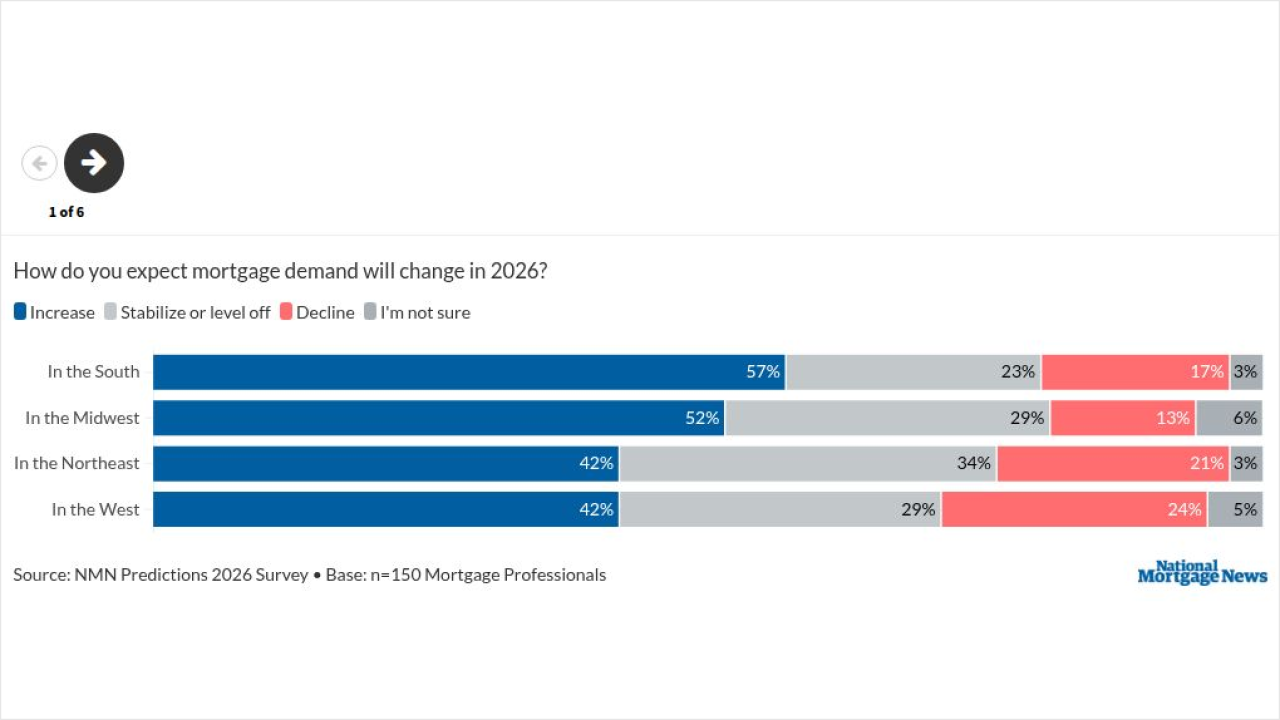The increasing power and frequency of natural disasters are weighing more heavily on borrowers’ decisions regarding where to live.
A 78% share of buyers and 84% of sellers said that
Among recent home buyers, 72% of millennials expressed concern, followed by 66% of Generation X, 58% of Generation Z, 55% of baby boomers and 44% of the silent generation. (The survey’s results were weighted for age and other factors in order to align them with their actual demographic proportions in the population, Realtor.com noted.)

Tornadoes were of greatest concern, as 39% of survey respondents worried about them, 38% were primarily concerned with
In areas accustomed to frequent major weather events, some lenders bring risk and loss mitigation to the forefront when working with clients.
“I actually feel like 100% of home buyers that relocate to Florida take natural disasters, mainly hurricanes, into account and rightfully so,” Davis said in a statement to NMN. “A lot of home buyers don’t take insurance seriously until they need it, but our goal is to get them to contact the agent so they know all their options.”
Natural disasters caused $156 billion in property damage from 2015 to 2019, more than doubling the $70 from 2010 to 2014, according to a study from Neighbor Who. From 1995 to 2019, Texas led all states by accruing $134.7 billion in property damage, followed by $84.9 billion in Louisiana and $62.6 billion in Florida. However, those totals could continue to rise going forward.
In the beginning of September, Hurricane Ida touched down in the Gulf Coast as a Category 4 and
As policymakers place greater focus on the impact of environmental disasters on housing, the mortgage industry is increasingly facing pressure to




